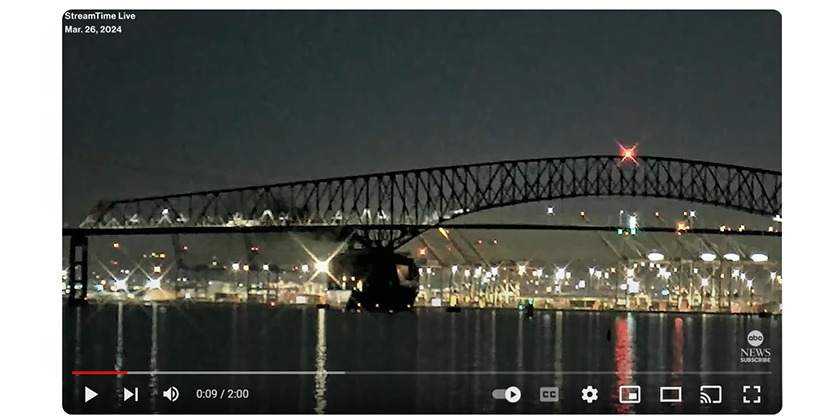Baltimore bridge collapse: potential for significant supply chain disruption

Apr 2, 2024
On March 26 at around 1.35am ET, the Francis Scott Key Bridge in Baltimore collapsed after it was struck by a container ship.
The container ship involved is the Singapore-flagged Dali which can carry just under 10 000 TEU (20ft shipping containers) and was operating on a 2M alliance service between Baltimore and the Far East.
Emily Stausbøll, Market Analyst at Xeneta – the ocean freight shipping rate benchmarking and intelligence platform, said: “This is a tragic and extremely serious mass casualty event and our thoughts are with all those people involved.
“The immediate focus is the rescue operation, but there will clearly be a highly-complex recovery phase and investigation to follow and we don’t know what impact this will have on operations at the Port of Baltimore.
“While Baltimore is not one of the largest US East Coast ports, it still imports and exports more than one million containers each year so there is the potential for this to cause significant disruption to supply chains.
Another source noted that Baltimore is a major port for vehicles as well.
“Far East to US East Coast ocean freight services have already been impacted by drought in the Panama Canal and recent conflict in the Red Sea, which saw rates increase by 150%, so this latest incident will add to those concerns.
“It is likely other larger US East Coast ports such as neighbouring New York/New Jersey and Virginia can handle additional container imports if Baltimore is inaccessible, which may limit any impact on ocean freight shipping rates. However, there is only so much port capacity available and this will leave supply chains vulnerable to any further pressure.
“The question is how quickly ocean freight carriers can put diversions in place, particularly for vessels already en route to Baltimore or containers at the port waiting to be exported.”
ADDENDUM: SEE Ritika Kapoor email for further details.



























